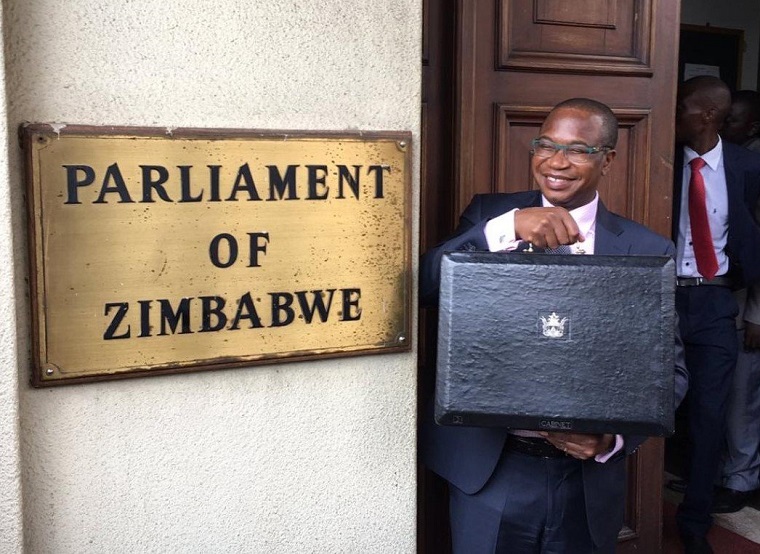 It is too early to get rid of the 1:1 currency peg, as doing so in the current environment may bring “irreparable damage” to the economy, according to analysts at Zimnat Asset Management.
It is too early to get rid of the 1:1 currency peg, as doing so in the current environment may bring “irreparable damage” to the economy, according to analysts at Zimnat Asset Management.
They however warn that Finance Minister Mthuli Ncube’s new taxes will cut consumer spending and slow down the economy in 2019.
Ncube is under pressure to float the rate, fixed at par with the US. Critics see this as an artificial rate that is bleeding the economy and hurting exporters.
In his 2019 budget statement, Ncube insisted that he would keep “preserving the value of money balances on the current rate of exchange of 1 to 1, in order to protect people’s savings and balance sheets”.
Economic commentator Eddie Cross last week described government’s insistence on currency parity as “ridiculous”.
But in a note to investors on Ncube’s budget, Zimnat Asset Management says Ncube is already slowly “deregulating” the foreign currency market and must stay the course on targeting the budget deficit and raising reserves, before considering any “devaluation”.
“Prematurely devaluing RTGS dollars, i.e. under the current unstable macroeconomic environment, may cause irreparable damage to confidence, national savings, the financial sector, and the overall economy. We therefore agree with the Finance Minister that currency reforms must be undertaken only after the economy and its markets have stabilised. We also hope that a properly constituted and learned Monetary Policy Committee will steer the currency reform process, through the crafting and implementation of sound and sensible monetary policies going forward,” Zimnat says.
Ncube, in his budget, also introduced duty in foreign currency on imported cars and a wide variety of goods. The move has been hugely unpopular, especially given that government has continued to insist on the parity of US dollars to RTGS deposits and bond notes. It will also make it harder for lower income earners to import cars and other goods, while senior officials are exempt from similar duty.
Zimnat analysts take a different view on the measure, saying: “Government’s new controversial policy of levying duties in foreign currency for luxury goods such as motor vehicles, may translate to either a decrease in demand for such goods, which contributes to lowering the trade deficit, because of the higher costs of importing them or may translate to an increase in foreign currency receipts for government, if the demand for the imported luxury goods remain unchanged. Either way, government wins.”
Continued next page
(398 VIEWS)






0 Comments